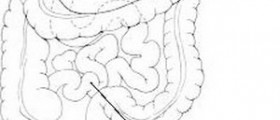
Mastoiditis is a medical term for inflammation of mastoid cells of the posterior process of the temporal bone. The condition can be acute and chronic. Acute mastoiditis generally develops as a consequence of acute otitis media. Chronic mastoiditis, on the other hand, is generally a clinically silent form of mastoiditis and results from chronic suppurative otitis media. It can also be connected with cholesteatoma (a benign but destructive and expanding growth tumor made of keratinizing squamous epithelium).
How does Acute Mastoiditis Develop?
The mastoid cells inside the temporal bone are lined with respiratory epithelium and filled with air. Once the infection reaches these cells, it leads to blockage of the antrum. This blockages is the consequence of inflammation of the mucosa which does not allow proper fluid drainage. What follows is mucopurulent build-up, increase in air cell pressure and demineralization of cell walls. This eventually leads to abscess formation. The infection can further spread to nearby tissue and organs causing severe and sometimes-life-threatening complications.
Because the mastoid portion of the temporal bone has an open connection with the middle ear, all infections of the inner ear can easily spread to the mastoid cells. This infection predominantly occurs in case infections of middle ear infections are not properly treated.
The condition can affect people of all ages, but it is most frequent among children (especially infants).
Acute Mastoiditis Clinical Characteristics
Patients suffering from mastoiditis complain about pain and swelling behind the ear. There is also fever and malaise. The pain intensifies if the affected area is touched. There is clear swelling behind the ear, and the skin is red. If the infection leads to accumulation of large amounts of pus, the mastoid area is significantly swollen and the inflamed portion becomes quite prominent.Potential Complications
Acute mastoiditis is a serious medical condition which requires prompt and proper treatment. If left untreated (and sometimes even in case when it is adequately treated), it may progress and cause severe complications some of which are even life-threatening.
Patients, for example, may end up with hearing loss, dizziness or vertigo. Furthermore, excessive swelling can put pressure to the facial nerve and induce facial palsy on the affected side. Spread of the infection to the brain and meninges is connected with brain abscess, encephalitis and meningitis.
Acute Mastoiditis Treatment
It is not so hard to diagnose acute mastoiditis thanks to typical clinical findings and patient's complaints. The condition can be easily confirmed with CT scan.
Antibiotics are the cornerstone of treatment for acute mastoiditis. They must be highly potent and completely eradicate infection. Pus collection inside the mastoid portion of the temporal bone cannot be absorbed by the body. This is why it needs to be surgically drained.
- www.nhs.uk/conditions/mastoiditis/
- medlineplus.gov/ency/article/001034.htm
- Photo courtesy of B. Welleschik by Wikimedia Commons: commons.wikimedia.org/wiki/File:Otitis_media_grippe.jpg

















Your thoughts on this
Loading...